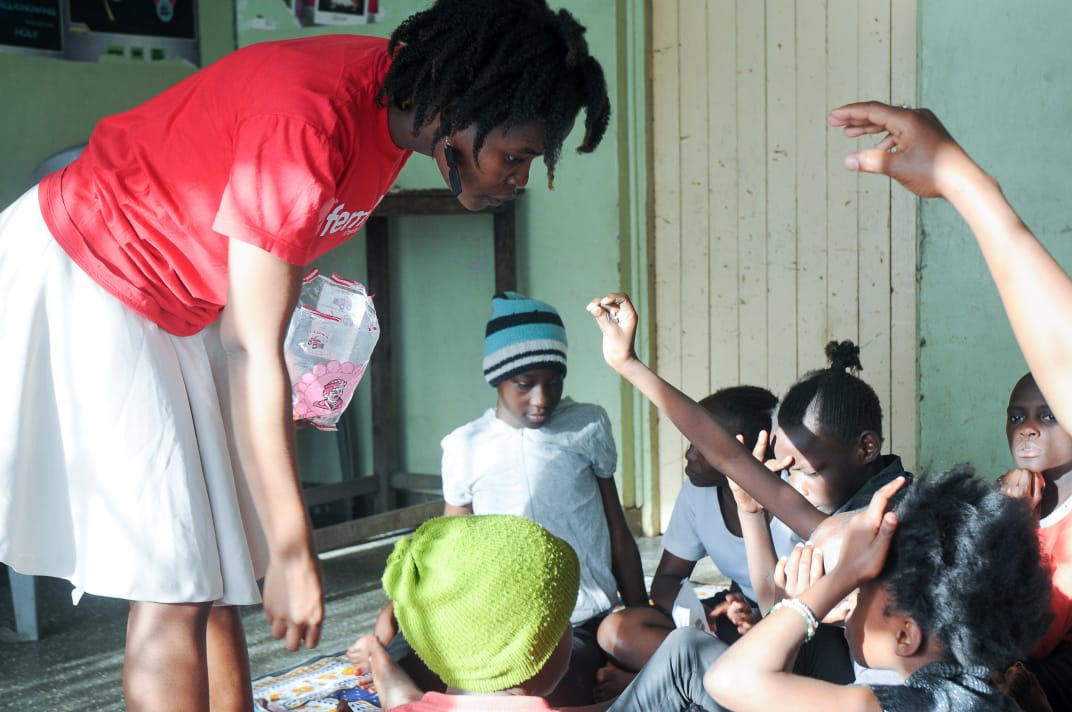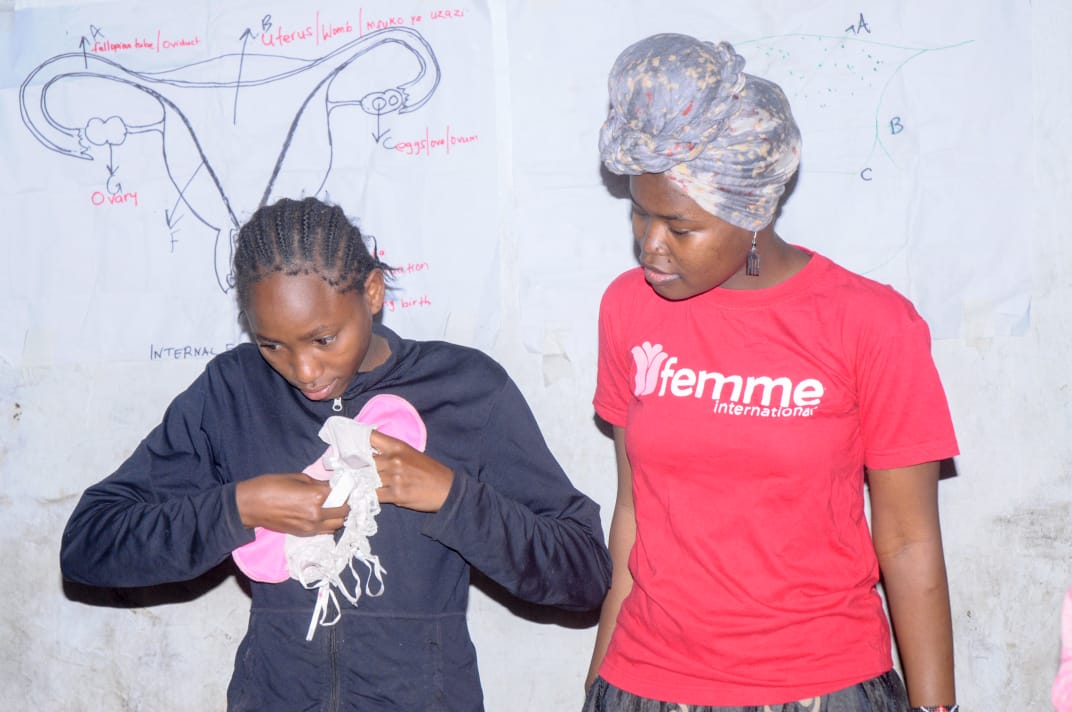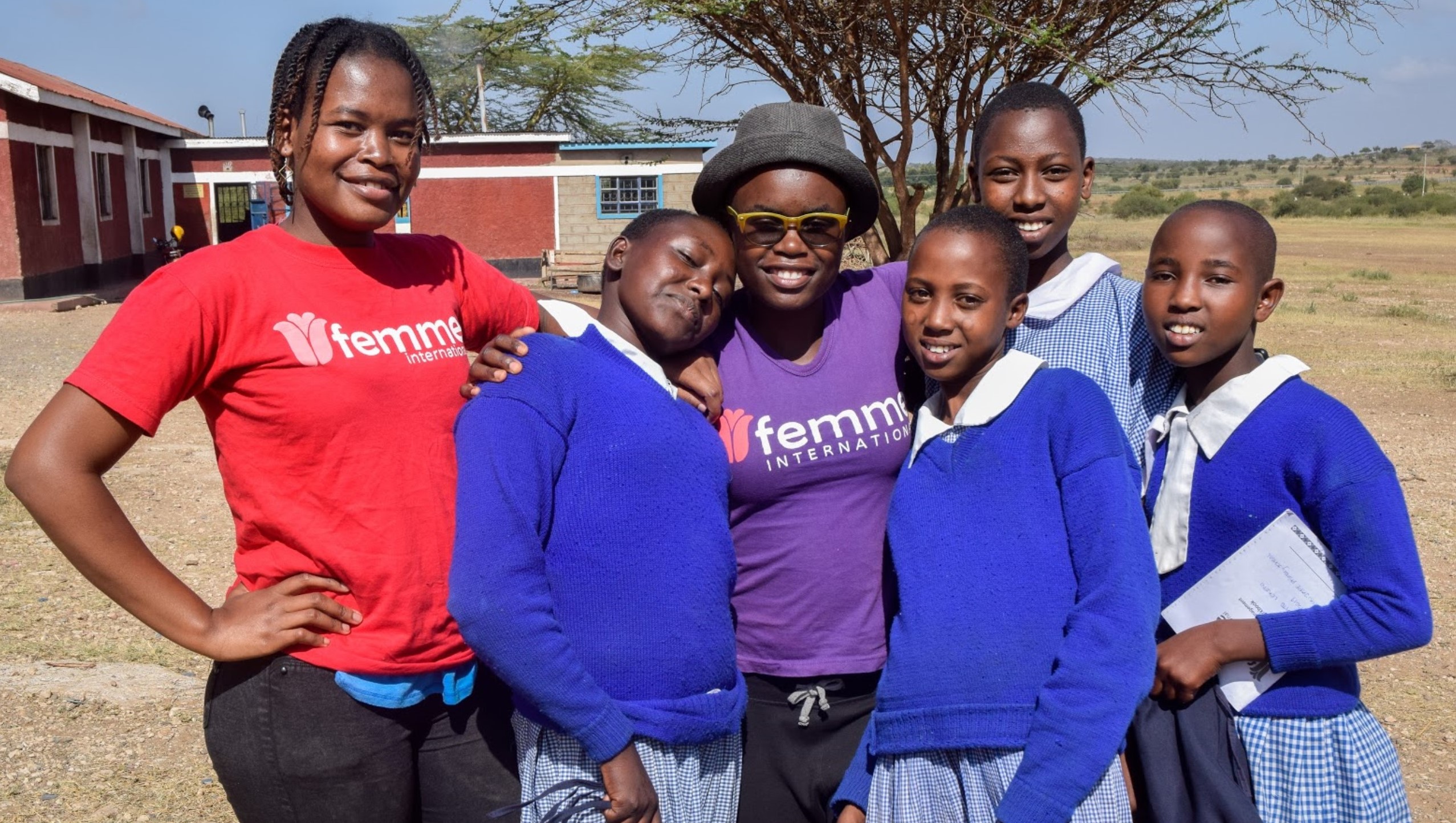Field Stories: Social influence barriers to facilitation menstrual health workshops
Written by: Judith Atieno, Twaweza Programme Facilitator – Nairobi, Kenya
After facilitating several menstrual health workshops over the past 6 years, it is clear from our beneficiary engagements that the number one way adolescents get information is through the community. This is unsurprising and completely normal, and also backed up by data from our needs assessments. It typically involves information that has been passed down from generation to generation,
usually laden with cultural myths and taboos, and unfortunately, barely any scientific facts. This makes our job that much harder, as not only do people need more than just access to knowledge to change their behaviour, but the community and social setting need to be open and supportive to such a change.

Judith engaging with students during a question and answer session of the Twaweza MHM programme, last year.
Menstruation, its experience, its perceptions and framing, and its management are drenched in socio-cultural norms and beliefs. These change from country to country, tribe to tribe, although there are some remarkable similarities. Our workshops need to be flexible enough to take these influences into account, and so we make sure to have lengthy Q&A sessions where more often than not, these social influences invariably come up.
One of the most common ways social influences come up is during the Q&A sessions, when participants ask questions about something they were told by a teacher or a guardian; they ask us to confirm if it’s true, or they try to challenge us.
Back in 2018, we ran (one of many) workshops at a school in Mathare, and distributed Femme Kits with menstrual cups (shout out to Ruby Cup!). When we return
ed for the six-week check-in a female teacher, who had also received a menstrual cup, told us she just kept her cup and would use it when she got married. The Problematic belief of aspiring merely to marriage aside, she believed that she would no longer be a virgin if she used the cup, hence the decision. This, despite the fact that she had attended the workshop just six weeks earlier, where we discussed virginity and specifically how the menstrual cup cannot, based on scientific facts, make one lose their virginity. And because of that, we made sure to stress, as always, that a cup can absolutely be used by women or girls who have not had sexual debut.

Judith teaching a Twaweza beneficiary how to wear a pad.
Teachers are both highly influential and an authority figure in an adolescent’s life, and any programming we undertake will have little effect if influencers are not also on board.
When we expect a teacher to lead by example, in some cases we end up being disappointed because they still refuse to change their attitude towards menstruation and usage of a menstrual product that needs to be inserted inside the vagina. Similarly, if a teacher is required to teach about menstruation in a class full of both boys and girls as part of the curriculum, what usually happens is that she refrains from covering the topic adequately, simply because she is influenced by her beliefs and shame because menstruation is never discussed as a topic.
Back at home, girls receive menstrual information from older women in their family, whether mother, sister, aunt, grandmother, etc., depending on both availability and tribal tradition. These older women, although they may take great pride in this responsibility, possess and pass on the same inaccurate and sometimes harmful advice, that girls then adopt, pass on, and the cycle continues.
Menstruation isn’t something shameful to be kept silent, but instead a gateway to reaching a community or group and a platform to broaden the conversation and address greater women’s rights issues.
When it also comes down to sexual reproductive health and rights education, you find in some area you are restricted from discussing the topic simply because you will be influencing bad behaviour to girls. The society does not notice the increase in teenage pregnancy every year and use of emergency contraceptives, therefore need to SRHR education in schools as low as primary schools.

Twaweza facilitators Judith(Left) and Emma pictured with Twaweza beneficiaries in Loitokitok last year.
These examples highlight the need to create menstrual programming that addresses these influences at different levels, priming the environment for behavioural change so that workshop participants are able to take the information on board and be in a supportive environment that is conducive to necessary behaviour change.
At the same time, we need to make sure that menstrual programming is accessible and relevant to all the different tribes and groups, inclusive to the countless beliefs and practices, tackling harmful myths and practices whilst being able to effectively support positive change and impact.










